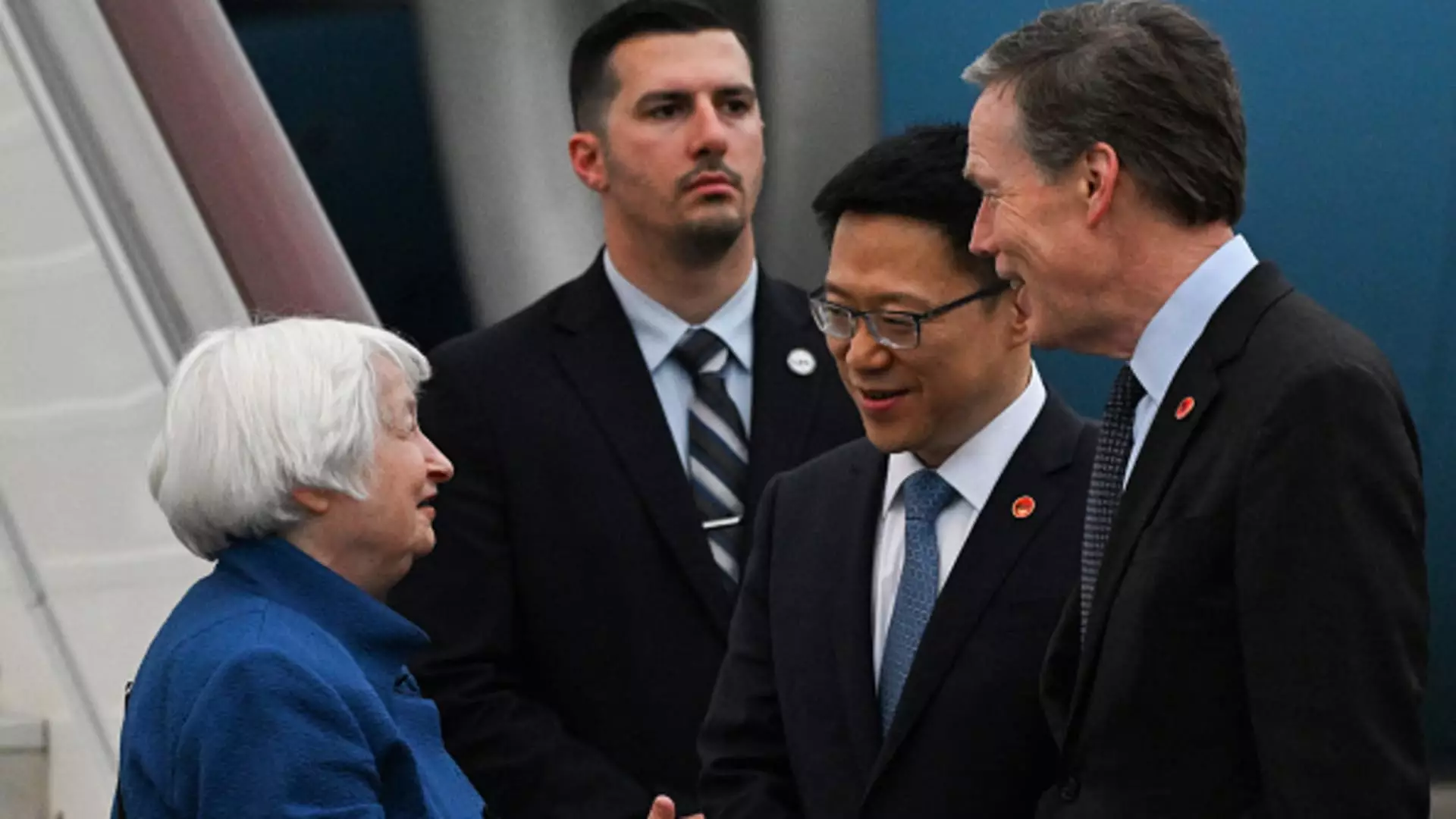During her official meetings in China, U.S. Treasury Secretary Janet Yellen emphasized the importance of pursuing market-oriented reforms and addressing overcapacity concerns. Yellen’s visit to Guangzhou and Beijing highlighted the need for a healthy economic relationship that benefits both American and Chinese economies. The issue of China’s industrial overcapacity, which can have global spillover effects, was a key topic of discussion during Yellen’s meetings in China.
Analysts from the U.S.-based consulting firm Rhodium Group have pointed out the challenges faced by Chinese manufacturing due to government support that has led to an excess of production capacity. Many Chinese firms are reliant on overseas markets to compensate for lower prices and margins in the domestic market. While Beijing has acknowledged the issue of overcapacity, the solutions proposed by the government involve retiring obsolete capacity and allowing uncompetitive companies to shut down.
Guangdong, a province known for its economic growth and home to the city of Shenzhen, plays a significant role in China’s economic development. As a hub for technology and manufacturing, Guangdong has been at the forefront of market-oriented reforms that have boosted China’s economic openness. Yellen’s meetings in Guangdong underscored the importance of the province in driving China’s economic growth and innovation.
Impact of China’s Economic Policies
China, as the world’s second-largest economy, plays a pivotal role in global economic growth. However, recent policy measures targeting property developers and internet platform companies have led to a slowdown in China’s economic growth. Uncertainty surrounding Beijing’s policies has dampened business and investor sentiment, raising concerns about the country’s economic outlook. The need for clear communication and collaboration between the U.S. and China remains crucial for sustained economic growth.
Importance of Sustaining Economic Ties
Nicholas R. Lardy, a senior fellow at the Peterson Institute for International Economics, highlighted the significance of China’s contribution to global economic growth, especially in the Asian region. Failure to appreciate China’s economic impact could hinder efforts to strengthen economic and security ties with Asian partners. Yellen’s visit to China and ongoing communication between the two governments signal a willingness to address differences and foster cooperation for mutual benefit.
Conclusion: Towards a Stronger Economic Relationship
As U.S.-China relations face challenges, the importance of market-oriented reforms and addressing overcapacity concerns in China cannot be overstated. Building a level playing field for American workers and firms, along with open communication on contentious issues, is essential for enhancing economic cooperation between the two countries. Yellen’s visit to China and the ongoing dialogue between the U.S. and Chinese governments offer hope for a more constructive and collaborative economic relationship in the future.


Leave a Reply